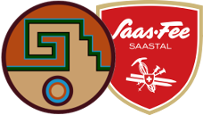Speaker
Description
A large part of the success of deep learning in computer science can be attributed to the introduction of dedicated architectures exploiting the underlying structure of a given task. As deep learning methods are adopted for high energy physics, increasing attention is thus directed towards the development of new models incorporating physical knowledge.
In this talk, we present a network architecture that utilizes our knowledge of particle combinations and directly integrates Lorentz boosting to learn relevant physical features from basic four vectors. We explore two example applications, namely the discrimination of hadronic top-quark decays from light quark and gluon jets, and the separation of top-quark pair associated Higgs boson events from a $t\bar{t}$ background. We also investigate the learned combinations and boosts to gain insights into what the network is learning.




